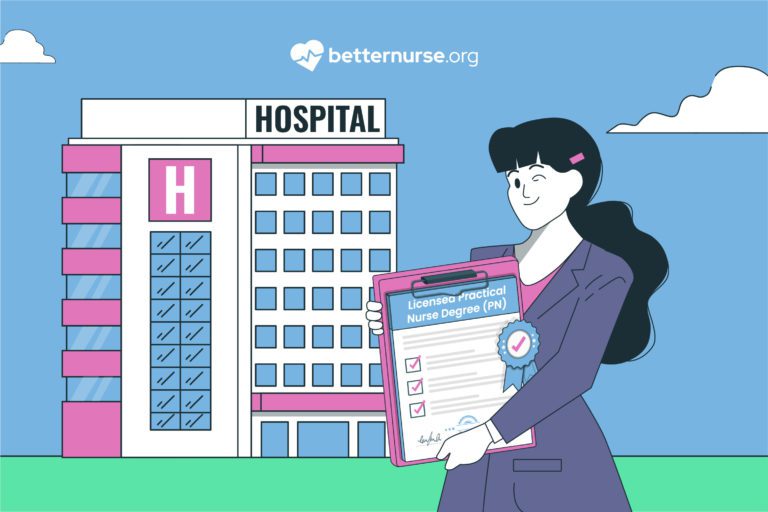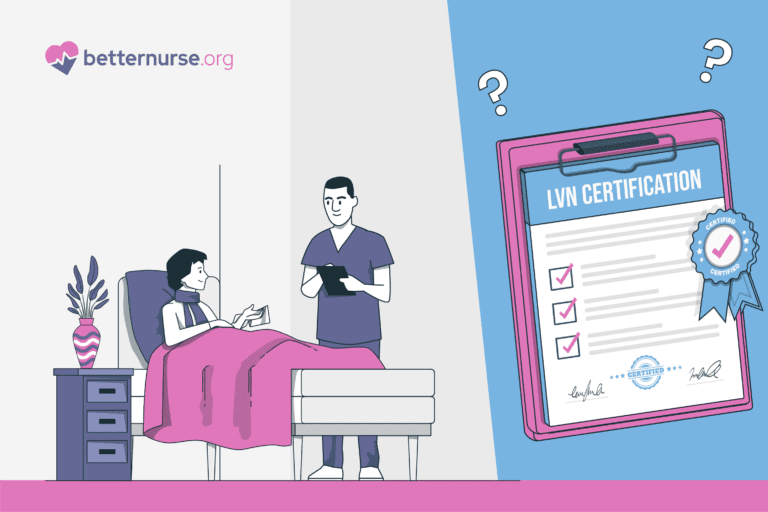Online LPN Programs
LPN Programs
Licensed practical nurses (LPNs), also known as licensed vocational nurses, provide basic patient care in hospitals, nursing homes, and other healthcare facilities. LPNs can complete their nursing training in about a year, allowing them to enter the workforce quickly with less financial burden or time commitment than a four-year degree. Online LPN programs offer a convenient, flexible option for getting the credentials for entry-level nursing jobs. Students complete course requirements at their own pace to help maintain their work or family responsibilities. We use a data-driven methodology to rank the best online LPN programs, making it easier for you to find a program that works for you. Our methodology is based on metrics that we believe matter most to students, including: academic quality, affordability, reputation, and program offerings. Keep reading to learn more about LPN online programs, or go straight to our list of the best online LPN programs.
What to Look for in an Online LPN Program
With so many online LPN programs to choose from, you should carefully research different schools to find the right fit for your personal needs and career goals. Before enrolling in an LPN program, explore these key signs of academic quality.
Admission Requirements
Admission requirements can provide an indication of the academic quality a school expects of its students. Be wary of schools with “easy” admission standards, such as low GPA requirements.
Clinical Experience
Every LPN program requires clinical components. Online learners may complete some laboratory experiences as part of their coursework, although most programs require on-site placements. Some schools allow online students to complete their clinical rotations at their workplace or help them find placements near their homes.
Program Length
Most LPN programs require 40 credit hours and a minimum of 500 clinical hours. While most students complete training in 12-18 months, the total length of time varies by school and depends on how many credits students complete each semester.
School Graduation Rate
Graduation rates can provide a strong indicator of a school’s commitment to student success. High graduation rates suggest that students receive the guidance and support they need throughout the program.
Program Curriculum
The LPN curriculum for most schools should offer basic courses in anatomy and physiology, pharmacology, chemistry, and biology. The program should also allow students to choose other courses aligned with their interests.
Accreditation
Accreditation by an independent agency, such as the Commission on Collegiate Nursing Education (CCNE) and the Accreditation Commission for Education in Nursing (ACEN), ensures the quality of a nursing program’s curriculum and clinical experiences.
School NCLEX Pass Rate
The reported pass rates for the National Council Licensure Exam (NCLEX) can serve as a measure of a program’s overall quality. When choosing a school, consider how their pass rate compares with the NCLEX national pass rate for LPNs, which is just over 80% as of 2021.
Online Learning Format and Requirements
Determine what kind of online delivery format works best for your success. Are you a self-motivated learner, or do you require some structure? Some online LPN programs are asynchronistic which allow you to study at your own pace, while others use synchronistic models with classes scheduled on fixed days and times.
Applying to Online LPN Programs
High school diploma or GED certificate; criminal background; entrance exam
Admission Materials
Minimum 2.5 GPA
GPA Requirements
Recommendation letters; some may also require the Test of Essential Academic Skills or American College Test scores
Other Requirements
More information on LPN Programs
Why Is Online LPN Program Accreditation Important?
Paying for Online LPN Programs
Frequently Asked Questions About Online LPN Programs
Many students complete their LPN training in one year of full-time coursework. However, several factors can affect this time frame. The number of required credits varies by program, from less than 40 to over 50. The clinical requirements can range between 500 and 750 hours, depending on the school or state regulations.
All LPN programs, including those offered online, require clinical hours and lab, although the specific number of hours varies by school and state requirements. Your program will place you in a supervised clinical experience at a hospital, clinic, nursing home, or other healthcare facility. Some schools can help you find placements close to your home.
The BLS projects the employment of LPNs to grow by 9% from 2020-2030, adding over 60,000 jobs each year. For those interested in becoming registered nurses (RNs), getting LPN experience can provide a competitive edge when applying to associate or bachelor of science in nursing bridge programs.
Although LPNs work as nursing professionals, they do not take on the same duties as RNs. LPNs provide basic care to patients, such as checking blood pressure and making sure patients are comfortable. Because LPNs do not have the same responsibilities as RNs, they do not need to graduate with a nursing degree. Instead, they can get certification after completing an LPN program.
What can you do as an lpn?
LPNs directly contribute to the care and comfort of their patients. Depending on the work setting, duties may include recording vital signs, giving medications, changing wound dressings, and bathing and feeding patients. Nursing care facilities, hospitals, mental health centers, home healthcare, and physicians’ offices rank among the most common workplaces for LPNs. LPN salaries vary by education level and type of employer. According to the U.S. Bureau of Labor Statistics (BLS), LPNs earn a median annual salary of $48,820, with the highest-paid employees working in government agencies, nursing and residential care facilities, and home healthcare. While most LPNs have a nurse certificate, earning potential increases for those who earn an associate degree in nursing (ADN) or higher.



